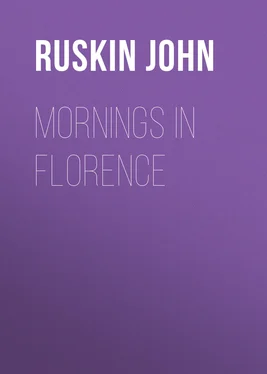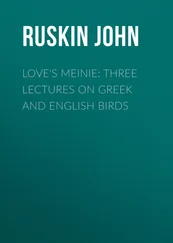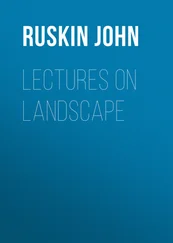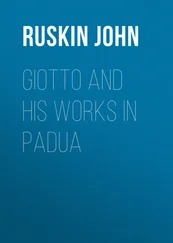John Ruskin - Mornings in Florence
Здесь есть возможность читать онлайн «John Ruskin - Mornings in Florence» — ознакомительный отрывок электронной книги совершенно бесплатно, а после прочтения отрывка купить полную версию. В некоторых случаях можно слушать аудио, скачать через торрент в формате fb2 и присутствует краткое содержание. Жанр: foreign_antique, foreign_home, literature_19, visual_arts, на английском языке. Описание произведения, (предисловие) а так же отзывы посетителей доступны на портале библиотеки ЛибКат.
- Название:Mornings in Florence
- Автор:
- Жанр:
- Год:неизвестен
- ISBN:нет данных
- Рейтинг книги:4 / 5. Голосов: 1
-
Избранное:Добавить в избранное
- Отзывы:
-
Ваша оценка:
- 80
- 1
- 2
- 3
- 4
- 5
Mornings in Florence: краткое содержание, описание и аннотация
Предлагаем к чтению аннотацию, описание, краткое содержание или предисловие (зависит от того, что написал сам автор книги «Mornings in Florence»). Если вы не нашли необходимую информацию о книге — напишите в комментариях, мы постараемся отыскать её.
Mornings in Florence — читать онлайн ознакомительный отрывок
Ниже представлен текст книги, разбитый по страницам. Система сохранения места последней прочитанной страницы, позволяет с удобством читать онлайн бесплатно книгу «Mornings in Florence», без необходимости каждый раз заново искать на чём Вы остановились. Поставьте закладку, и сможете в любой момент перейти на страницу, на которой закончили чтение.
Интервал:
Закладка:
Well, now you must ask for the Sacristan, who is civil and nice enough, and get him to let you into the green cloister, and then go into the less cloister opening out of it on the right, as you go down the steps; and you must ask for the tomb of the Marcheza Stiozzi Ridolfi; and in the recess behind the Marcheza's tomb—very close to the ground, and in excellent light, if the day is fine—you will see two small frescos, only about four feet wide each, in odd-shaped bits of wall—quarters of circles; representing—that on the left, the Meeting of Joachim and Anna at the Golden Gate; and that on the right, the Birth of the Virgin.
No flourish of trumpets here, at any rate, you think! No gold on the gate; and, for the birth of the Virgin—is this all! Goodness!—nothing to be seen, whatever, of bas-reliefs, nor fine dresses, nor graceful pourings out of water, nor processions of visitors?
No. There's but one thing you can see, here, which you didn't in Ghirlandajo's fresco, unless you were very clever and looked hard for it—the Baby! And you are never likely to see a more true piece of Giotto's work in this world.
A round-faced, small-eyed little thing, tied up in a bundle!
Yes, Giotto was of opinion she must have appeared really not much else than that. But look at the servant who has just finished dressing her;—awe-struck, full of love and wonder, putting her hand softly on the child's head, who has never cried. The nurse, who has just taken her, is—the nurse, and no more: tidy in the extreme, and greatly proud and pleased: but would be as much so with any other child.
Ghirlandajo's St. Anne (I ought to have told you to notice that,—you can afterwards) is sitting strongly up in bed, watching, if not directing, all that is going on. Giotto's lying down on the pillow, leans her face on her hand; partly exhausted, partly in deep thought. She knows that all will be well done for the child, either by the servants, or God; she need not look after anything.
At the foot of the bed is the midwife, and a servant who has brought drink for St. Anne. The servant stops, seeing her so quiet; asking the midwife, Shall I give it her now? The midwife, her hands lifted under her robe, in the attitude of thanksgiving, (with Giotto distinguishable always, though one doesn't know how, from that of prayer,) answers, with her look, "Let be—she does not want anything."
At the door a single acquaintance is coming in, to see the child. Of ornament, there is only the entirely simple outline of the vase which the servant carries; of colour, two or three masses of sober red, and pure white, with brown and gray.
That is all. And if you can be pleased with this, you can see Florence. But if not, by all means amuse yourself there, if you find it amusing, as long as you like; you can never see it.
But if indeed you are pleased, ever so little, with this fresco, think what that pleasure means. I brought you, on purpose, round, through the richest overture, and farrago of tweedledum and tweedledee, I could find in Florence; and here is a tune of four notes, on a shepherd's pipe, played by the picture of nobody; and yet you like it! You know what music is, then. Here is another little tune, by the same player, and sweeter. I let you hear the simplest first.
The fresco on the left hand, with the bright blue sky, and the rosy figures! Why, anybody might like that!
Yes; but, alas, all the blue sky is repainted. It was blue always, however, and bright too; and I dare say, when the fresco was first done, anybody did like it.
You know the story of Joachim and Anna, I hope? Not that I do, myself, quite in the ins and outs; and if you don't I'm not going to keep you waiting while I tell it. All you need know, and you scarcely, before this fresco, need know so much, is, that here are an old husband and old wife, meeting again by surprise, after losing each other, and being each in great fear;—meeting at the place where they were told by God each to go, without knowing what was to happen there.
"So they rushed into one another's arms, and kissed each other."
No, says Giotto,—not that.
"They advanced to meet, in a manner conformable to the strictest laws of composition; and with their draperies cast into folds which no one until Raphael could have arranged better."
No, says Giotto,—not that.
St. Anne has moved quickest; her dress just falls into folds sloping backwards enough to tell you so much. She has caught St. Joachim by his mantle, and draws him to her, softly, by that. St. Joachim lays his hand under her arm, seeing she is like to faint, and holds her up. They do not kiss each other—only look into each other's eyes. And God's angel lays his hand on their heads.
Behind them, there are two rough figures, busied with their own affairs,—two of Joachim's shepherds; one, bare headed, the other wearing the wide Florentine cap with the falling point behind, which is exactly like the tube of a larkspur or violet; both carrying game, and talking to each other about—Greasy Joan and her pot, or the like. Not at all the sort of persons whom you would have thought in harmony with the scene;—by the laws of the drama, according to Racine or Voltaire.
No, but according to Shakespeare, or Giotto, these are just the kind of persons likely to be there: as much as the angel is likely to be there also, though you will be told nowadays that Giotto was absurd for putting him into the sky, of which an apothecary can always produce the similar blue, in a bottle. And now that you have had Shakespeare, and sundry other men of head and heart, following the track of this shepherd lad, you can forgive him his grotesques in the corner. But that he should have forgiven them to himself, after the training he had, this is the wonder! We have seen simple pictures enough in our day; and therefore we think that of course shepherd boys will sketch shepherds: what wonder is there in that?
I can show you how in this shepherd boy it was very wonderful indeed, if you will walk for five minutes back into the church with me, and up into the chapel at the end of the south transept,—at least if the day is bright, and you get the Sacristan to undraw the window-curtain in the transept itself. For then the light of it will be enough to show you the entirely authentic and most renowned work of Giotto's master; and you will see through what schooling the lad had gone.
A good and brave master he was, if ever boy had one; and, as you will find when you know really who the great men are, the master is half their life; and well they know it—always naming themselves from their master, rather than their families. See then what kind of work Giotto had been first put to. There is, literally, not a square inch of all that panel—some ten feet high by six or seven wide—which is not wrought in gold and colour with the fineness of a Greek manuscript. There is not such an elaborate piece of ornamentation in the first page of any Gothic king's missal, as you will find in that Madonna's throne;—the Madonna herself is meant to be grave and noble only; and to be attended only by angels.
And here is this saucy imp of a lad declares his people must do without gold, and without thrones; nay, that the Golden Gate itself shall have no gilding that St. Joachim and St. Anne shall have only one angel between them: and their servants shall have their joke, and nobody say them nay!
It is most wonderful; and would have been impossible, had Cimabue been a common man, though ever so great in his own way. Nor could I in any of my former thinking understand how it was, till I saw Cimabue's own work at Assisi; in which he shows himself, at heart, as independent of his gold as Giotto,—even more intense, capable of higher things than Giotto, though of none, perhaps, so keen or sweet. But to this day, among all the Mater Dolorosas of Christianity, Cimabue's at Assisi is the noblest; nor did any painter after him add one link to the chain of thought with which he summed the creation of the earth, and preached its redemption.
Читать дальшеИнтервал:
Закладка:
Похожие книги на «Mornings in Florence»
Представляем Вашему вниманию похожие книги на «Mornings in Florence» списком для выбора. Мы отобрали схожую по названию и смыслу литературу в надежде предоставить читателям больше вариантов отыскать новые, интересные, ещё непрочитанные произведения.
Обсуждение, отзывы о книге «Mornings in Florence» и просто собственные мнения читателей. Оставьте ваши комментарии, напишите, что Вы думаете о произведении, его смысле или главных героях. Укажите что конкретно понравилось, а что нет, и почему Вы так считаете.












